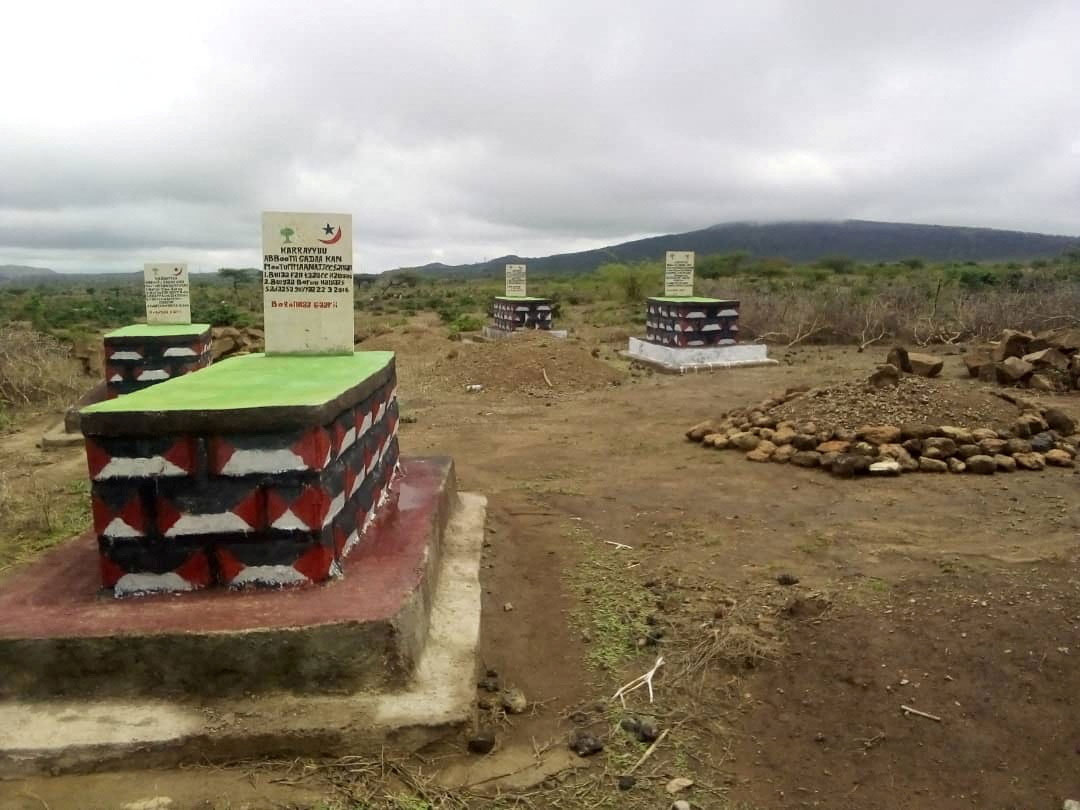Secret Ethiopian Committee Accused of Ordering Arrests, Killings in Oromia
ADF STAFF
Two gym instructors in Oromia, Ethiopia’s largest and most populous region, were detained on suspicion of working with the Oromo Liberation Army (OLA), which has battled government forces for decades.
The instructors denied involvement with the OLA, which is responsible for hundreds of civilian deaths in addition to kidnappings. OLA grievances are rooted in the alleged marginalization and neglect of Oromos.
The men were suspended from a ceiling, with their arms bound at the wrist and their legs bound at the ankle.
“I was put upside down and then [shocked] on the sole of my foot,” one told Reuters. “Five days a week for 45 days.”
He had the scars to prove it.
“When they torture you using this method, blood spills out of your body,” the other instructor said.
The instructors were detained in 2021 on the orders of a group of high-ranking Ethiopian officials known as Koree Nageenyaa, according to a recent Reuters investigation that confirmed the group’s existence. Koree Nageenyaa means “secret committee” in the Oromo language.
The news service interviewed more than 30 federal and local officials, judges, lawyers and victims of abuses ordered by the committee.
The gym instructors told Reuters they were released after several months in prison. Others detained by Koree Nageenyaa have spent years behind bars with no prospect of freedom, their lawyers and families say.
The committee is accused of ordering hundreds of illegal detentions and dozens of extrajudicial killings in efforts to suppress the OLA. Among the killings, Reuters reported, was a massacre of 14 shepherds in Oromia in 2021 that the government blamed on the rebel group.
Koree Nageenyaa began operating in the months after Prime Minister Abiy Ahmed came to power in 2018. Those familiar with the committee say it was formed at Abiy’s instigation.
Reuters found no evidence that Abiy attends its meetings or issues orders to the committee. However, the Koree Nageenyaa meets in the Oromia regional offices of Abiy’s Prosperity Party and is headed by Shimelis Abdisa, his former chief of staff and current president of the region. Fekadu Tessema, leader of the Prosperity Party in Oromia, also sits on the committee.
Daniel Bekele, head of the state-appointed Ethiopian Human Rights Commission, confirmed the existence of the Koree Nageenyaa. He said its aim was to address growing security challenges in Oromia, but it “overreached its purpose by interfering in the justice system with widespread human rights violations.”
“We documented multiple cases of extrajudicial killings, arbitrary detentions, torture and extortion,” Bekele told the news service.
Abiy has defended his government’s human rights record. “Since we think along democratic lines, it is hard for us to even arrest anyone, let alone execute them,” he told Parliament in early February.
The committee is accused of ordering the arrests of people it deemed a security threat or to have their prison terms extended, beginning in 2019, half a dozen judges and prosecutors told Reuters. An intelligence official disclosed that 1,006 people were arrested on the committee’s orders between 2019 and March 2022.
“The Koree Nageenya sits down and decides that a person needs to be detained,” a former judge on the Oromia supreme court told the news service. “Then they go and arrest them without warrant or investigation or due process.”
Peace talks between the government and the OLA failed twice in 2023. Both sides blamed the other after the most recent round of negotiations ended in late November.
Redwan Hussein, Abiy’s national security advisor, referred to the OLA’s “intransigence” in a post on X, formerly Twitter. “The obstructive approach and unrealistic demands of the other party are the principal reasons why these talks could not succeed,” Hussein wrote.
The OLA accused the government of failing to address the “fundamental problems that underlie the county’s seemingly insurmountable security and political challenges,” Al Jazeera reported.


Comments are closed.